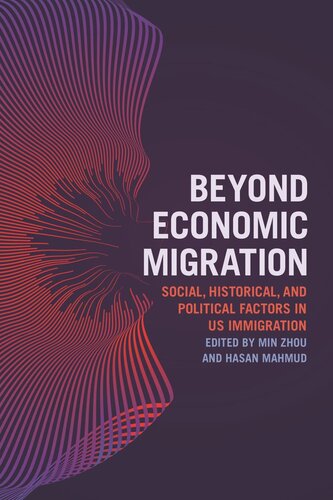

Most ebook files are in PDF format, so you can easily read them using various software such as Foxit Reader or directly on the Google Chrome browser.
Some ebook files are released by publishers in other formats such as .awz, .mobi, .epub, .fb2, etc. You may need to install specific software to read these formats on mobile/PC, such as Calibre.
Please read the tutorial at this link: https://ebookbell.com/faq
We offer FREE conversion to the popular formats you request; however, this may take some time. Therefore, right after payment, please email us, and we will try to provide the service as quickly as possible.
For some exceptional file formats or broken links (if any), please refrain from opening any disputes. Instead, email us first, and we will try to assist within a maximum of 6 hours.
EbookBell Team

4.7
76 reviewsOffers a critique of the economic model of immigration
Most understandings of migration to the US focus on two primary factors. Either there was trouble in the home country, such as political unrest or famine, that pushed people out, or there was a general yearning for “a better life” or “more opportunity,” often conceptualized as the American Dream.
Although many contemporary migrants in the United States have been driven by economic interests, the processes of immigration and integration are shaped also by the intersection of a range of noneconomic factors in both sending and receiving countries. The contributors to Beyond Economic Migration offer a nuanced look at a range of issues affecting motives to migrate and outcomes of integration, including US immigration policy and the visa system, labor market incorporation, employment precarity, identity and belonging, and transnationalism relating to female migrants, student migrants, and temporary foreign workers.
Beyond Economic Migration argues that, for the dream of fair and equitable migration to be realized, analyses of cross-border movements, resettlement, and integration must pay attention to how migrants’ individual attributes interact with institutional mechanisms and social processes.